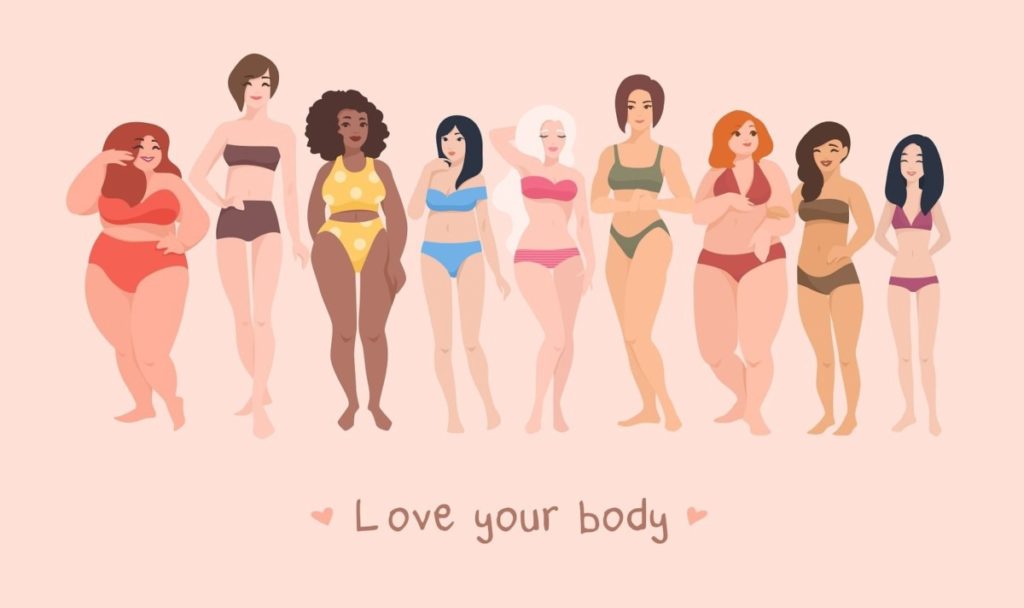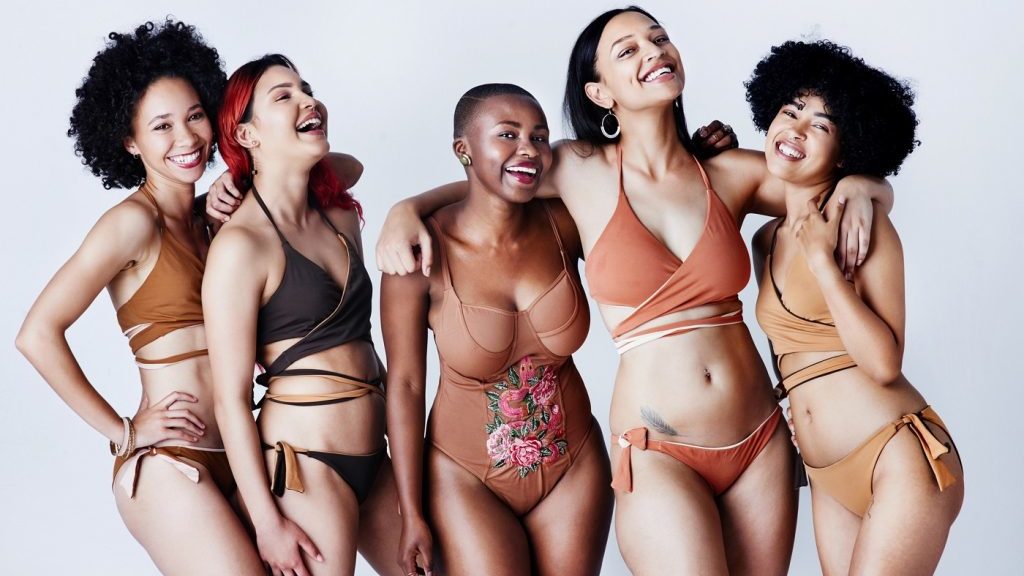What is the Body Positivity Movement?
According to VeryWell Mind, body positivity refers to “the assertion that all people deserve to have a positive body image, regardless of how society and popular culture view ideal shape, size, and appearance.” The movement’s main goal is not only to challenge the way that society views others based on their shape and physical size, but it also aims to help people recognize the concept that many judgments, especially in social media, are based on race, sexuality, gender, and disability.
Some of the many goals of this movement include: helping people build confidence and acceptance of their own bodies, addressing unrealistic body standards, challenging how society views the body, and promoting the acceptance of all bodies. It also aims to help people understand how social media can heavily contribute to the relationship one could have with their body.

The Body Positivity Movement and Social Media:
Don’t use social media to impress people. Use it to impact people.
– Dave Willis
This body positivity movement has caught on because of the unhealthy practices of users on social media. Individuals are encouraged to question beauty standards and welcome diversity in body size and appearance. When teenagers join social media platforms, there is an opportunity for them to become exposed to unrealistic body types due to photoshop and body enhancement that are nearly avoidable with so many apps incorporating the use of filters.
You may often find yourself comparing your own appearance to people on Instagram or whatever platform you may be using. For the longest time, I believed that the socially acceptable beauty standard was having blond hair, blue eyes, pale skin, and legs with a gap in between. Victoria’s Secret angels, TV ads, and runway models were plastered all over to be seen as this image of “perfection” to the American population for decades– especially for young people.
This unrealistic beauty standard is still largely being advertised. Women often compare themselves to celebrities and people they see on social media. This leads them to feel pressured to fit into what garners praise and will make them feel liked. But it’s all an illusion. It’s okay to have acne, wide hips, or cellulite. It’s okay to be a person of color or have a disability. You’re perfect just the way you are and there’s no need for you to change because, in reality, the images you see on social media are highly edited to make you feel as if the only way to be beautiful is to be without flaws.
5 Tips on How to Embrace Body Positivity:
- Post positive affirmations on your mirror:
- We usually experience the most body-hate in front of a mirror. Posting notes on your mirror, such as “Love your body” and “You’re beautiful” will be a reminder to love yourself.
- Get rid of your scale
- Weighing yourself daily can become an unhealthy obsession. The number on the scale doesn’t define your worth.
- Remind yourself that if you wouldn’t say it to your friends, don’t say it to yourself
- When you realize you find yourself being overly critical with your body, ask yourself, “Would I say this to a friend?” Most likely, the answer would be “No.” Treat your body like it’s your best friend.
- Learn to accept a compliment.
- You are putting yourself down by not being able to accept a compliment. Avoid replying to a compliment with a “Thank you but…” Showing your gratitude by responding with a simple “Thank you so much” is more than enough.
- Don’t compare yourself to your younger self or others
- Everyone is different and our bodies change significantly as we grow older. It is normal and completely healthy to not look exactly like what we looked liked 5 years ago. It is essential to be happy and healthy in our own bodies. Comparing yourself to others, or even another version of yourself is not helpful.
As the pandemic continues, eating disorders– among other mental health concerns– have increased. If you feel as though you are experiencing disordered eating or are feeling an unhealthy level of self-criticism, depression, etc., speak to your guidance counselor, a parent, or another caring adult.
Featured image credit: Pranin Organic
